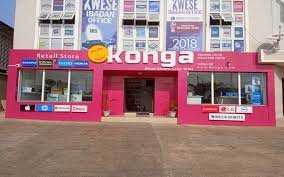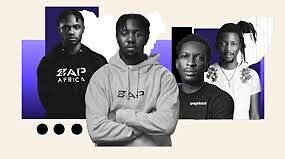Over 6,000 Nigerian vendors have earned a combined ₦71 billion ($42 million) since Glovo launched in the country in 2021. Glovo shared this update during its Future of Commerce 2025 summit held in Lagos on Wednesday. This milestone demonstrates Glovo’s robust growth in Nigeria’s competitive e-commerce market and its strategy to expand beyond food delivery into a broader retail landscape.
In Nigeria, the 6,000 vendors make up 13% of the 45,000 African businesses using Glovo across the continent. Since entering Africa in 2018, the company has invested €200 million and now operates in 75 cities across six countries—Nigeria, Kenya, Uganda, Côte d’Ivoire, Morocco, and Tunisia.
In Nigeria alone, Glovo serves 11 cities, with most activity centered in Lagos. The company’s 2,400 riders in Nigeria reportedly earn two to three times more than the national minimum wage of ₦70,000 ($43). At the event, Glovo recognized an Abuja-based rider who completed 14,000 deliveries since joining in 2021.
Glovo Grows Into Quick-Commerce and Non-Food Items
 Glovo Future of Commerce 2025 summit
Glovo Future of Commerce 2025 summit
In 2024, Glovo’s quick-commerce segment experienced a 76% rise in gross merchandise value (GMV). This growth came from adding new categories like electronics, beauty items, and medicine. Now, 20% of Glovo’s users order more than just food. This shift mirrors a larger trend, as food delivery platforms such as Chowdeck and HeyFood are turning into full retail marketplaces.
Glovo Nigeria’s General Manager, Lamide Akinola, said at the summit, “We’re building a tech-powered marketplace that helps Nigerian small businesses grow using logistics, data, and financial tools.”
Glovo also shared data showing a shift toward digital payments in Nigeria. In 2021, 88% of users paid with cash. That number has dropped to 39% in 2024—a 55% decrease. This change supports Nigeria’s push for a cashless economy. Unlike some of its rivals, like FoodCourt and Chowdeck, which limit cash payments to stop failed deliveries and fraud, Glovo still allows cash. This may help build trust with users in a market that is still adjusting to digital payments.
Glovo also presented its Yellow Effect Report, which shows that the platform created over €1 billion in economic value for 45,000 businesses across Africa between 2020 and 2024. Most of these businesses—about 90%—are small and medium-sized enterprises (SMEs).
At the summit, Glovo hosted fireside chats and panel sessions featuring well-known brands like Chicken Republic, Burger King, and Sweet Sensation, along with financial partners such as Moniepoint and WEMA Bank. They discussed how to improve SME financing. Popular vendors and virtual kitchen owners like 500Chow, Toasties, and FireWood Jollof also spoke about how Glovo helped them solve delivery problems and grow their businesses.







No Comments